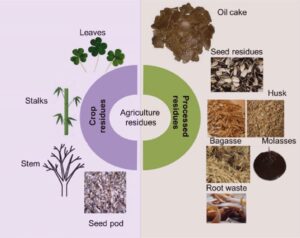GS3 – Agriculture

Context:
A new initiative, Brown Revolution 2.0, is being proposed to address soil degradation by adopting an Amul-style cooperative model for managing agricultural waste.
The earlier Brown Revolution focused on leather production and cocoa cultivation in tribal regions.
Why Brown Revolution 2.0?
- Soil Degradation: Vast stretches of Indian farmland have organic matter levels below critical thresholds, endangering long-term productivity.
- Agro-Waste Mismanagement: Only about 20% of crop residues are recycled scientifically; the remainder is burned or discarded.
- Environmental Hazards: Burning residues generates PM2.5, CO, CO₂, and other harmful pollutants; runoffs lead to eutrophication of water bodies.
Proposed Model
- Amul-Inspired Cooperatives: Establish village-level waste management cooperatives.
- Value Addition: Process waste into compost, vermicompost, and biochar.
- Dual Impact:
- Restores soil fertility.
- Reduces reliance on expensive chemical fertilisers.
- Technology Integration: Use AI and IoT for soil monitoring, optimising production, and enabling carbon credit participation.
Policy Framework
- Funding Mandate: District-level cooperative clusters for agro-waste processing.
- Economic Incentives: Introduction of an MSP for processed biomass.
- Regulatory Measures: Strict ban on open burning of crop residues.
- Scheme Integration: Link with Soil Health Card scheme for data-based feedback to farmers.




